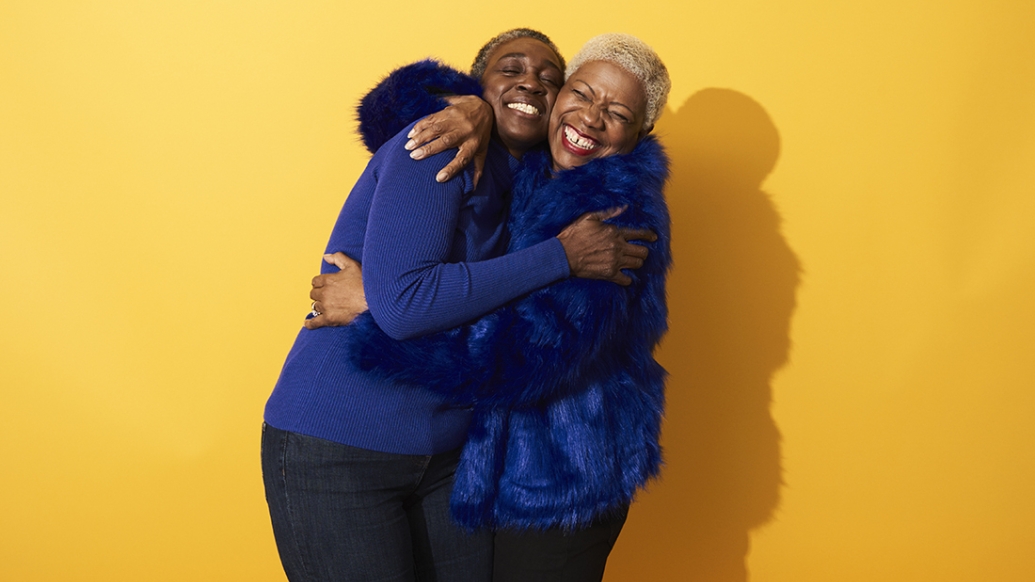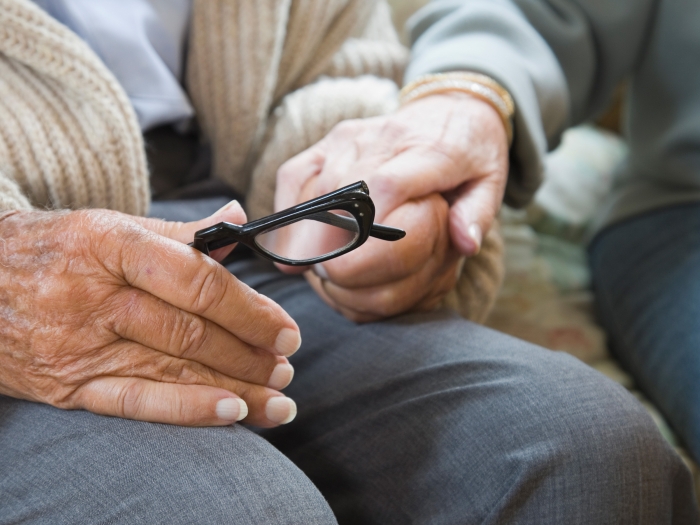Poll finds many people over 50 have found joy and stayed resilient amid the prolonged public health crisis, but a sizable number report stress too.
8:00 AM
Author |

As major holidays and the promise of a new year approach, a new poll of people over 50 shows that most of them are finding joy and staying resilient amid the pandemic.
But a sizable minority are feeling a lot of stress – including about their risk of getting COVID-19. Women and those in their 50s and early 60s were more likely to report feeling a lot of stress. Those stress levels were highest – and joy levels lowest – among those who said their overall physical or mental health is fair or poor and those with the lowest incomes
And 27% of people over 50 said that just thinking about leaving their house caused them stress about the possibility of catching the coronavirus, while 58% said thinking about going to a crowded indoor space made them feel stressed for the same reason.
The new findings from the National Poll on Healthy Aging shine a light on which older adults who may need more attention from family, friends and health providers as the pandemic continues. The poll also shows what activities and social connections are bringing joy to the most older people.
The poll is based at the University of Michigan Institute for Healthcare Policy and Innovation and supported by AARP and Michigan Medicine, U-M's academic medical center.
The poll authors, who include two researchers from the U-M School of Public Health and Institute for Social Research, call for clear public health messaging about local COVID risk levels for different activities, and about specific steps older adults can take to reduce their risk as the pandemic continues.
MORE FROM THE LAB: Subscribe to our weekly newsletter
"The clear differences in ability to find joy during these times, and in experiences of stress, based on health status, shows the importance of focusing on those in poor health," said poll report author Lindsay Kobayashi, Ph.D., M.Sc., an assistant professor of epidemiology. "But for all older adults, we know that alterations in daily life impact emotional and mental health, so finding safe ways to enjoy favorite activities is important."
SEE ALSO: Risk of PTSD, anxiety, loneliness after COVID-19 hospitalization
The poll was taken before the widespread availability of booster doses of COVID-19 vaccine for older adults.
Now that all adults can get a booster shot after a certain time has passed from their original vaccination, added protection could help reduce stress, said poll director Preeti Malani, M.D., an infectious disease physician with training in geriatrics at Michigan Medicine.
"Older adults, and all of us, need to find that balance between protecting ourselves and being overly hesitant to engage in activities that can bring us the kind of joy that supports our physical and emotional well-being," Malani said. "This poll shows this may be especially important for those who have developed a stress-based response to activities that once were indeed very risky before vaccines, boosters and increased access to rapid testing, but now can be safely navigated by most people. This includes small gatherings of fully vaccinated people or attending events with vaccination, testing, and requirements for masks."
Co-author and ISR postdoctoral fellow Jessica Finlay, Ph.D., notes that the poll's finding of more ability to find joy and less experiences of stress among adults age 65 to 80 builds on previous research about the impact of older age on resilience.
Older adults, and all of us, need to find that balance between protecting ourselves and being overly hesitant to engage in activities that can bring us the kind of joy that supports our physical and emotional well-being.Preeti Malani, M.D.
"While aging can involve loss and stress, older age can also be a period of immense strength, growth, wisdom, and resilience."
Like Podcasts? Add the Michigan Medicine News Break on iTunes, Google Podcasts or anywhere you listen to podcasts.
Fifteen percent of the older adults polled said they've become more resilient and able to "bounce back" or overcome challenges during the pandemic, while 71% said they are just as resilient as they were before the pandemic.
In addition to their work on the new poll report, Kobayashi and Finlay head the COVID-19 Coping Study, which is studying the impact of the pandemic on the mental health and well-being of older adults.
Other poll findings:
-
About half (47%) of poll respondents report a mixed experience of joy and stress
-
Thirty-seven percent of older adults who say their health is poor reported feeling a lot of stress, compared with just 12% of those who say their health is excellent or very good.
-
Sixty-two percent of those who say their mental health is poor reported feeling a lot of stress, compared with just 8% of those who call their health excellent or very good.
-
Twenty-six percent of those in the lowest household income bracket said they feel a lot of stress, compared with 18% of those in the highest.
-
Twenty percent of older adults say they feel a lot of stress these days, while 38% said they have little to no stress. Those aged 50 to 65 were nearly twice as likely as those aged 65 to 80 to said they experience a lot of stress (25% vs. 13%).
-
Seventeen percent of older adults polled said they feel little or no joy these days, but 53% said they feel some joy and 30% say they are feeling a lot of joy.
-
The most common sources of joy cited by poll respondents were being outdoors (87%), physical activity (72%), hobbies or projects (72%), being alone (58%) and pets (56%).
-
Relationships with others are important sources of joy, including friends (cited by 80% of poll respondents), children (70%), spouses or partners (64%) and co-workers (61%).
-
A nearly equal percentage said they got joy out of in-person and virtual connections with others, at 83% and 79% respectively. Other sources of joy: volunteering (43%) and faith-related activities (39%), social media (37%) and attending online events (22%).
"It's no surprise that many older adults have felt stress during the COVID-19 pandemic, which profoundly changed our daily lives," said Alison Bryant, Ph.D., senior vice president of research for AARP. "It's encouraging that most older adults also report finding sources of joy like being outdoors and connecting with friends and family, whether in-person or virtually."
SEE ALSO: Pandemic took a toll on older people serving as caregivers for loved ones
AARP's Mental Health Center highlights news and resources for older adults' mental wellbeing.
The poll report is based on findings from a nationally representative survey conducted by NORC at the University of Chicago for IHPI, and administered online and via phone in August 2021 among 2,110 older adults age 50–80. The sample was subsequently weighted to reflect the U.S. population. Read past National Poll on Healthy Aging reports and about the poll methodology.
Paper cited: National Poll on Healthy Aging poll report

Explore a variety of healthcare news & stories by visiting the Health Lab home page for more articles.

Department of Communication at Michigan Medicine
Want top health & research news weekly? Sign up for Health Lab’s newsletters today!





